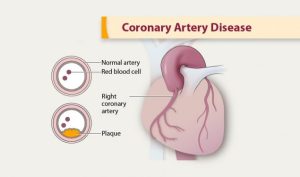A variety of medical conditions can cause breathing difficulties due to poor oxygen intake and circulation. Being unable to breathe causes fatigue, chest tightness, palpitations, etc. A person cannot perform basic work activities when limited from basic breathing. 
Some conditions, like asthma, are easily treated with steroid inhalers that open up the pulmonary pathways in the lungs. Others are not.
Regardless of what diagnosis is affecting your breathing, a strong case involving this medical condition typically charts the following course:
- Referrals: Establish care with a Cardiologist, and a pulmonologist if recommended. Your primary care doctor can refer you to one.
- Compliance: Take your eye drops and any other medications every day. Find a system that works for you. (If the SSA sees any signs of non-compliance in your medical records, then they will severely discount the severity of this condition.)
- Imaging and Testing: Ask your specialist about the following:
- Chest x-ray or CT-angiogram. The latter imaging is more detailed than a simple x-ray and is more likely to show what is causing your problem.
- Echocardiogram
- Exercise Stress Test
- Protect yourself against respiratory diseases that are likely to make your symptoms worse (e.g. annual influenza vaccine and Covid-19 vaccine).
- Change your Habits as your Doctor Advises:
- Try your best to improve your diet and lose weight.
- Reduce your weekly smoking habits.
- Quit smoking cigarettes as soon as possible.
- Report your milestones to your providers often.
- Do not smoke marijuana.
- Clean your home often and avoid having pets like cats.
Written By: Jacob Hugentobler, Hearing Attorney
Image Credit (Lungs): COPD Versus Healthy Lung, Wikimedia Commons, available at: https://commons.wikimedia.org/wiki/File:Copd_versus_healthy_lung.jpg
Image Credit (Heart): Coronary Artery Disease (CAD), Centers for Disease Control & Prevention (07/19/2021), available at https://www.cdc.gov/heartdisease/coronary_ad.htm
The post Respiratory Conditions and Social Security Disability: Overcoming Breathing Difficulties appeared first on Packard Law Firm.

